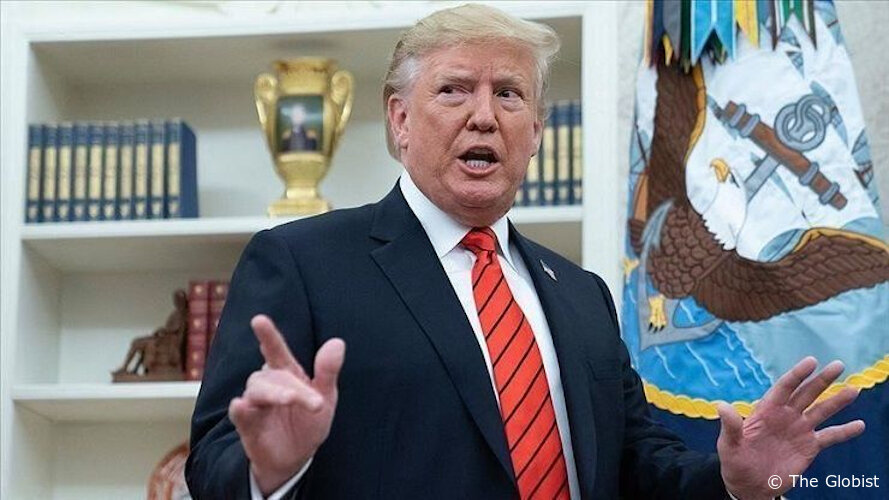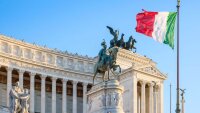America’s Future Lies Still within its Incumbent President’s Hands

With most news agencies putting Joe Biden firmly in the lead to the White House, incumbent President Donald Trump made clear the ballot boxes would hold little sway over his decision to vacate, or NOT, the corridors of America’s power … mostly not.
But then again we never expected ‘America’s favourite president’ to conform to the rules … even if the rule of law, if such conformity would mean incurring a personal loss.
Indeed, to suffer a defeat by the hands of the Democrats might not just cost Mr Trump the presidency – following 4 years of a mandate that has been defined by a systematic redrawing of ethical lines, the Donald might have more to lose than a neatly remodelled Rose Garden and one very Oval Office.
Maybe more to the point, Mr Trump might just feel like another fight against the one party he has so often denigrated to the point of caricature.
2020 has been painful … and yet, I cannot help to think that the storm about to hit, should Mr Trump choose to unleash the very powers vested in him to the bitter end, could shift all of our reality more dramatically then COVID-19 ever did.
For weeks now President Trump has alluded to electoral fraud, warning that the presidency’s future would have to be decided not at the ballot boxes, but in court, by the very hands of the very Supreme Court judges he made sure to nominate earlier this year.
“We need nine justices. You need that,” Trump told reporters on November 3rd, as he foretold the election would be rife with fraud.
“With the unsolicited millions of ballots that they’re sending, it’s a scam; it’s a hoax. Everybody knows that. And the Democrats know it better than anybody else. So you’re going to need nine justices up there. I think it’s going to be very important. Because what they’re doing is a hoax, with the ballots.”
It would not be the first time that a US President’s fate is decided not by the electoral college but the Supreme Court. Not so long ago, another Republican needed a little push to clear his path to the White House. In the 2000 presidential election, Texas Gov. George W. Bush defeated Vice President Al Gore, not by clearly having the most votes cast in his favor, but by more effectively fighting court battles following a Florida result so hazy that – as Leon Nayfakh reported in the podcast series Fiasco – the true winner may have been unknowable.
Although the doctrine used to rationalise this one electoral aberration was never meant to become a precedent, history may soon prove that once is often enough to set a trend – especially for a man such as Trump, for whom political legitimacy is a power grab instead of an exercise in democracy.
President Trump has certainly struck out into uncharted territory with his threats of a legal battle for the presidency. And though, many experts, including Robert Shapiro, a professor and the former acting director of Columbia University’s Institute for Social and Economic Research and Policy are adamant such antics will do little to prevent the inevitable – that is the ushering of the next duly elected president of the United States to his functions, the Supreme Court might not be the only arrow in Trump’s bow.
It is 2020 after all… the unimaginable, extraordinary and unpalatable have become the new normal.
If in effect no president in America’s history has ever refused to concede power – so that the Republic’s institutions and democratic tradition would survive even the most turbulent of times, that is not to say that it is not possible. Many nations have stumbled at such fault lines – when political ambitions supersede the need for institutional continuity. Interestingly enough not even the Constitution provisions for such a hypothesis … leaving much to the interpretation.
And since history is written by the victor, America’s future will very much depend on whose hand will hold the pen.
As Jonathan Gienapp, a Stanford University historian, noted this October in remarks to the press,
“Trump’s refusal to commit to a peaceful transfer of power calls the strength of American institutions into question. The constitution itself has no direct safeguards to ensure peace, and instead assumes that everyone involved in an election shares a commitment to abiding by the outcome.”
And,
“We have institutions that can be called upon to arbitrate disputes or deny unlawful usurpations of power, but the safeguards that will decide matters are more political than constitutional, It may fall to elected political leaders, as it did in 1876-77, to work out some sort of compromise. Or, if necessary, the people will need to exercise their fundamental right to assemble and protest in an attempt to bring about resolution.”
There lies maybe the seed of civil unrest.
With gun sales at an all-time high this November over fears of post-elections violence, warnings Trump’s supporters will take matters in their own hands to see through their wishes of another Trump’s mandate may yet become true- especially as America sits at such polar political opposites, the narrative tainted by accusations of treason.
A leading concern identified by the Transition Integrity Project which looked at the many scenarios 2020 US elections could usher actually identified the situation we found ourselves in today – a close election in which Trump adopts “a strategy of casting doubt on official election results.” Under that scenario, both Trump and Biden supporters were seen mobilizing on the ground, which the group said “significantly” increases the possibility of violence.
And while it may be too early to tell what Lady Fate has in store for the United States of America – an irony which will not be lost on many nations, most of all those often lambasted by Washington for their democratic failures, Mr Trump has still a few weeks in office.
Which weeks he is free to use as he sees fit, with all the powers the Oval Office bestowed upon him … did I hear you shudder?
Catherine Shakdam









